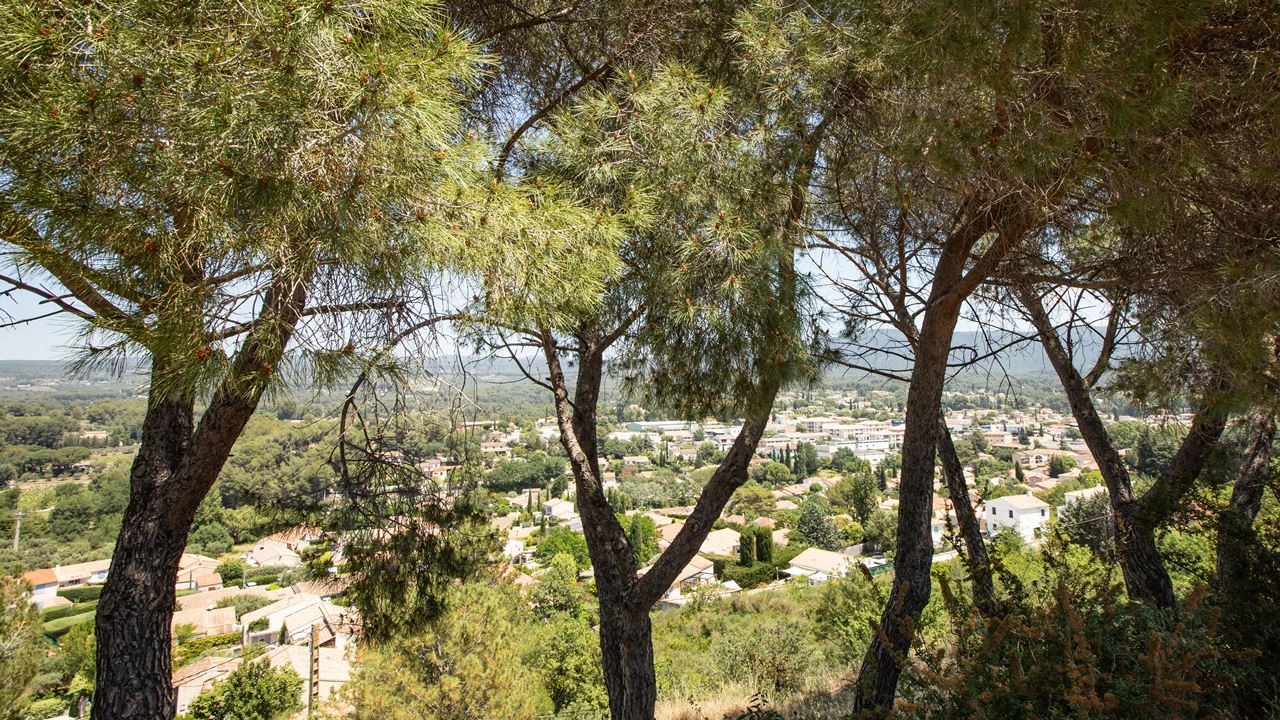The U.S. may be ready to see cicadas gone, but this French village has a statue, a song and ceramics in their honor

LE BEAUSSET, France - The five-foot blue iron cicada dangles upside-down from a metal branch, bulging eyes staring at the sky. It appears ready to launch itself at any moment at cars moving through the traffic circle below.
The $34,000 statue was inaugurated last year as a proud defense of the seasonal insect, after complaints from tourists who had dared to ask if the din emanating from the trees could be stopped with an application of insecticide.
The chorus of cicadas, or "cigales," as they are called here, is an annual and generally beloved phenomenon in southern France, especially in the region of Provence. And the village of Le Beausset, with a population of about 10,000 people and an unknown number of cicadas, is the self-proclaimed cicada capital.
Across the region, visitors can buy cicada postcards and cicada tablecloths and ceramic cicadas in more than three dozen colors. For the biggest fans, shops in Le Beausset's neighboring town of Le Castellet sell versions that release their deafening sounds whenever anyone comes close.
And so as residents of Le Beausset and across France's south await the annual chirping of the insects - expected later this month - many here have watched reaction to the U.S. "zombie cicada invasion" with a mix of bewilderment and surprise.
They understand that the cicada species dominant in southern France emerge in lower density than the 17-year periodical cicadas that have roiled the East Coast this summer. But few here would think of the insect as an edible snack. Or something worthy of 911 noise complaints.
"In Provence, cicadas are culturally omnipresent," said Stéphane Puissant, a cicada expert who works for the city of Dijon's Science and Biodiversity Garden.
According to a Provincial legend, cicadas were sent from heaven to keep people from dozing off in the midday heat of summer. But the people of Provence found the sound calming, and it lulled them to sleep all the same.
One of France's most famous poems, "The Cicada and the Ant" - published in 1668 by Jean de La Fontaine and inspired by an Aesop fable - portrays the cicada as improvident, singing the summer through and having to beg for provisions in the winter.
La Fontaine's cicada may have been a reference to the predicament of artists. And so in the 19th century, a group of Provence-based writers, the Félibrige, adopted a golden cicada as a symbol, along with the phrase, "The sun makes me sing."
The insect was linked to warmth and light, Puissant said, and that reputation soon spread to the north of France.
Cicadas in France are "really associated with holidays and sunny places, and it's a really positive image," said François Dusoulier, head curator at France's National Museum of Natural History.
French TV ads, for example, feature the sound of cicadas to evoke the joys of summer months.
As an indication of French reverence for cicadas, the country's Senate voted this year to classify cicada chirping - along with cow smells, rooster crowing and other elements of everyday life in France's countryside - as national heritage, protected from litigation and elimination.
To the extent that cicadas are the subject of complaints, Dusoulier blamed a growing disconnect between "urban societies, especially maybe in northern countries, and the real life cycle of nature that occurs in the Mediterranean areas."
Yves Pujol, a singer who lives in Provence, agreed that in his experience, the people registering their disgust primarily come from big cities.
"They don't mind the noise of ambulances all day and night, but the sound of cicadas bothers them," he remarked.
"It's like saying: There's too much sun. Can we do something against it, can we hide the sun?" he said. "It's impossible."
Following the tourist complaints in Le Beausset in 2018, Pujol wrote a song staunchly supportive of cicadas. The refrain - "Don't touch, don't touch the cicadas, don't touch, or you get slapped" - may strike some as aggressive, but it is meant as a symbolic message and reflects how strongly the region feels about the insect, he told The Washington Post.
The song seemed to strike a chord with locals. It has been viewed 250,000 times on YouTube. It's typically the first song his group plays at concerts in the region, even three years after the controversy. As Pujol stood in the center of Le Beausset's cicada roundabout earlier this month, talking to The Post, locals asked to take photos with him, and a man cheered from his car.
"The cicada won't be exterminated - no matter what happens - it won't be killed, and it won't be poisoned with pesticides," said Philippe Marco, Le Beausset's former deputy mayor for culture, festivities and heritage.
On the national stage, the cross-party support for France's roosters and cicadas this year was seen as a sign of how all major parties will fight for the votes of rural residents in the presidential elections next year.
But in Le Beausset, there is some distaste for what locals see as the politicization of cicadas.
It was the village's then-mayor who was the driving force behind the cicada statue, and some residents complain about his conservative group's reliance on the insect as a symbol in its most recent election campaign.
Other residents have questioned why their iron cicada had to be blue and not look more like the actual insect.
But there are no doubts about how the residents feel about the animal in nature.
In a small tourist shop in the village center, where cicada replicas are available for $2.40, owner Marie-Christine Fenot has been growing more impatient by the day.
As soon as the first cicadas sing, village residents will post videos on Facebook, she said.
"It's important for us," she said. "It really is."
